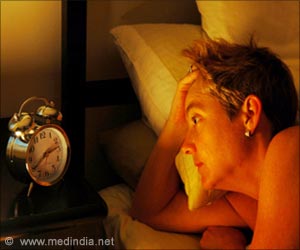Many different kinds of memories are improved with sleep. While a new study has looked at how naps might affect our ability to learn new faces and names.
A new research by investigators at Brigham and Women's Hospital (BWH) offers a valid reason to get a good night's sleep. In a closely controlled study of fourteen participants, researchers found that they were significantly better at remembering faces and names if they were given an opportunity to sleep for up to eight hours after seeing those faces and names for the first time.
The team's findings appear in the journal
Neurobiology of Learning and Memory this week. "We know that many different kinds of memories are improved with sleep. While a couple of studies have looked at how naps might affect our ability to learn new faces and names, no previous studies have looked at the impact of a full night of sleep in between learning and being tested," said Jeanne F. Duffy, PhD, MBA, corresponding author on this study and associate neuroscientist in the Division of Sleep and Circadian Disorders at BWH.
TOP INSIGHT
Many different kinds of memories are improved with sleep. While investigators at Brigham and Women's Hospital (BWH) have looked at how naps might affect our ability to learn new faces and names.
"We found that when participants were given the opportunity to have a full night's sleep, their ability to correctly identify the name associated with a face - and their confidence in their answers - significantly improved." Participants in the study underwent testing in a controlled environment while staying at BWH's Center for Clinical Investigation.
They were shown 20 photos of faces with corresponding names from a database of over 600 color photographs of adult faces, and asked to memorize them. After a twelve-hour period, they were then shown the photos again with either a correct or incorrect name. In addition to answering whether or not the correct name was shown, participants were asked to rate their confidence on a scale of one to nine.
Each participant completed the test twice - once with an interval of sleep in between and once with a period of regular, waking day activities in between. When given an opportunity to sleep for up to eight hours, participants correctly matched 12 percent more of the faces and names.
The researchers did not find that sleep duration or sleep stage influenced people's ability to correctly recognize faces and names - more extensive, larger studies will be needed to determine if these factors make an important difference.
The new findings suggest that sleep after new learning activities may help improve memory. While the current study was conducted on healthy subjects in their 20s, the research team would like to explore the implications for people of all ages, including older adults.
"Sleep is important for learning new information. As people get older, they are more likely to develop sleep disruptions and sleep disorders, which may in turn cause memory issues," said Duffy. "By addressing issues with sleep, we may be able to affect people's ability to learn things at all different ages."
Source-Eurekalert

 MEDINDIA
MEDINDIA




 Email
Email










